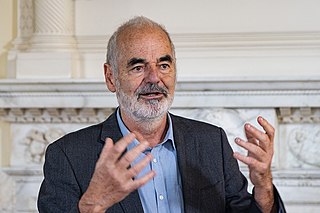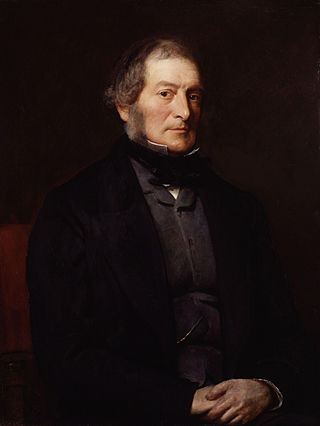Related Research Articles
Science education is the teaching and learning of science to school children, college students, or adults within the general public. The field of science education includes work in science content, science process, some social science, and some teaching pedagogy. The standards for science education provide expectations for the development of understanding for students through the entire course of their K-12 education and beyond. The traditional subjects included in the standards are physical, life, earth, space, and human sciences.

In contemporary education, mathematics education—known in Europe as the didactics or pedagogy of mathematics—is the practice of teaching, learning, and carrying out scholarly research into the transfer of mathematical knowledge.

Education in England is overseen by the Department for Education. Local government authorities are responsible for implementing policy for public education and state-funded schools at a local level. State-funded schools may be selective grammar schools or non-selective comprehensive schools. All state schools are subject to assessment and inspection by the government department Ofsted. England also has private schools and home education; legally, parents may choose to educate their children by any suitable means.

In education, a curriculum is the totality of student experiences that occur in an educational process. The term often refers specifically to a planned sequence of instruction, or to a view of the student's experiences in terms of the educator's or school's instructional goals. A curriculum may incorporate the planned interaction of pupils with instructional content, materials, resources, and processes for evaluating the attainment of educational objectives. Curricula are split into several categories: the explicit, the implicit, the excluded, and the extracurricular.

A comprehensive school is a secondary school for pupils aged 11–16 or 11–18, that does not select its intake on the basis of academic achievement or aptitude, in contrast to a selective school system where admission is restricted on the basis of selection criteria, usually academic performance. The term is commonly used in relation to England and Wales, where comprehensive schools were introduced as state schools on an experimental basis in the 1940s and became more widespread from 1965.
The National Curriculum for England is the statutory standard of school subjects, lesson content, and attainment levels for primary and secondary schools in England. It is compulsory for local authority-maintained schools, but also often followed by independent schools and state-funded academies. It was first introduced by the Education Reform Act 1988 as simply The National Curriculum and applied to both England and Wales. However, education later became a devolved matter for the Welsh government.
Principles and Standards for School Mathematics (PSSM) are guidelines produced by the National Council of Teachers of Mathematics (NCTM) in 2000, setting forth recommendations for mathematics educators. They form a national vision for preschool through twelfth grade mathematics education in the US and Canada. It is the primary model for standards-based mathematics.
Founded in 1920, The National Council of Teachers of Mathematics (NCTM) is a professional organization for schoolteachers of mathematics in the United States. One of its goals is to improve the standards of mathematics in education. NCTM holds annual national and regional conferences for teachers and publishes five journals.

Sir David John Spiegelhalter is a British statistician and a Fellow of Churchill College, Cambridge. From 2007 to 2018 he was Winton Professor of the Public Understanding of Risk in the Statistical Laboratory at the University of Cambridge. Spiegelhalter is an ISI highly cited researcher.
Sir John Frank Charles Kingman is a British mathematician. He served as N. M. Rothschild and Sons Professor of Mathematical Sciences and Director of the Isaac Newton Institute at the University of Cambridge from 2001 until 2006, when he was succeeded by David Wallace. He is known for developing the mathematics of the coalescent theory, a theoretical model of inheritance that is fundamental to modern population genetics.

Sir Adrian Frederick Melhuish Smith, PRS is a British statistician who is chief executive of the Alan Turing Institute and president of the Royal Society.

The California Department of Education is an agency within the government of California that oversees public education.

Core-Plus Mathematics is a high school mathematics program consisting of a four-year series of print and digital student textbooks and supporting materials for teachers, developed by the Core-Plus Mathematics Project (CPMP) at Western Michigan University, with funding from the National Science Foundation. Development of the program started in 1992. The first edition, entitled Contemporary Mathematics in Context: A Unified Approach, was completed in 1995. The third edition, entitled Core-Plus Mathematics: Contemporary Mathematics in Context, was published by McGraw-Hill Education in 2015.
The A level, is a main school leaving qualification of the General Certificate of Education in England, Wales, Northern Ireland, the Channel Islands and the Isle of Man. It is available as an alternative qualification in other countries, where it is similarly known as an A-Level.
Statistics education is the practice of teaching and learning of statistics, along with the associated scholarly research.
Assessing Pupils' Progress (APP) has been developed for use in schools in England and Wales to enable them to apply Assessment for Learning (AfL) consistently across both the secondary and primary National Curriculum. APP assessment guidelines were finalised in 2008 for Mathematics, English, Science and ICT. Initial development of APP was undertaken by the National Strategies but is now overseen by the Qualifications and Curriculum Development Agency (QCDA). Currently the status of APP is that it is 'recommended' that schools use it but it is not statutory. With the change in UK government in May 2010, the status of APP could change. Ofsted said APP was unnecessary in 2010, and the APP documents have not been on the Department for Education's website since 2011. The coalition government has got rid of it.

A comprehensive school, or simply a comprehensive, typically describes a secondary school for pupils aged approximately 11–16 or 11–18, that does not select its intake on the basis of academic achievement or aptitude, in contrast to a selective school system where admission is restricted on the basis of selection criteria, usually academic performance. In England and Wales comprehensive schools were introduced as state schools on an experimental basis in the 1940s and became more widespread from 1965. They may be part of a local education authority or be a self governing academy or part of a multi-academy trust.

In the United States, elementary schools are the main point of delivery of primary education, for children between the ages of 4–11 and coming between pre-kindergarten and secondary education.
Mathematics education in the United Kingdom is largely carried out at ages 5–16 at primary school and secondary school. However voluntary Mathematics education in the UK takes place from 16 to 18, in sixth forms and other forms of further education. Whilst adults can study the subject at universities and higher education more widely. Mathematics education is not taught uniformly as exams and the syllabus vary across the countries of the United Kingdom, notably Scotland.

Science education in England is generally regulated at all levels for assessments that are England's, from 'primary' to 'tertiary' (university). Below university level, science education is the responsibility of three bodies: the Department for Education, Ofqual and the QAA, but at university level, science education is regulated by various professional bodies, and the Bologna Process via the QAA. The QAA also regulates science education for some qualifications that are not university degrees via various qualification boards, but not content for GCSEs, and GCE AS and A levels. Ofqual on the other hand regulates science education for GCSEs and AS/A levels, as well as all other qualifications, except those covered by the QAA, also via qualification boards.
References
- Smith, Adrian (2004). Making mathematics count: The report of Professor Adrian Smith's inquiry into post-14 mathematics education. London, England: The Stationery Office.